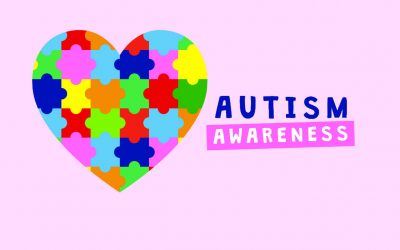Telltale Signs Of Autism
As part of The Times Christmas Appeal for The National Autistic Society, our reporter reveals the difficulties of diagnosing the condition
[By Penny Wark.]
http://www.thetimes.co.uk/article/0,,72-2001571729,00.html
Autism is a condition that responds not merely to treatment, but to recognition. If a child is found to be autistic, the expectations around him can change and pressure can be lifted, and with it the child’s anxiety. Yet, as many parents discover, it can take years of being shunted from one health professional to another before autism is diagnosed in a child.
Although awareness of autism is growing, there are still doctors who know little or nothing about it. Especially at consultant level, says Dr Judith Gould, a consultant clinical psychologist who is the director of the Centre of Social and Communication Disorders, run by The National Autistic Society. “Senior people are not always up to date and may not be aware of the spectrum of autism,” she says. “There are still areas where they take a narrow view.”
This year The Times Christmas Appeal invites readers to help children with autism by raising funds for The National Autistic Society. Over the past ten years its Centre of Social and Communication Disorders has led the way in training paediatricians, psychiatrists, psychologists and speech and language therapists to diagnose autism.
Two years ago a study carried out by the society showed that 65 per cent of parents saw three or more professionals before getting a firm diagnosis for their child. Forty per cent of parents waited more than three years for a diagnosis, and 10 per cent waited ten years or more.
“Parents sometimes have a tremendous struggle to get through the system,” says Dr Gould. ”
Our aim is for people to be seen locally, because then they can be offered ongoing support. But training is essential because autism cannot be diagnosed with a blood test or a brain scan; it is a matter of taking a history and understanding different manifestations.”
For a child of two-and-a-half to three the indications revolve around social interaction. Autistic children do not relate well to other children or their environment, they may hit out. They like routines and are resistant to change.
“The autistic child is more interested in leaves on the trees or a particular toy than another toddler sitting beside him. They lack a social instinct. “We think mothers usually know within the first few months that something is not quite right about their baby. He’s not alert and lively and curious and exploring in an appropriate way. “Or if a baby is very passive, that is another indicator because it’s normal for babies to cry and be demanding and want cuddles.
An experienced clinician can pick it up within the first year or 18 months. Most parents seek help when they see that their child’s language and play isn’t
developing,” says Dr Gould.
Parents concerned that their children may be autistic should see their GP and ask for a referral to a child development centre. The earlier the diagnosis, the better for the child and the family. Dr Gould has seen adults given the diagnosis of Asperger’s syndrome at 50. Their condition has not been recognised because they are passive, but they have led difficult lives in which they have been teased and bullied. This need not happen, she points out, and training professionals to diagnose the condition promptly is the way to make the lives of those who have autism easier.
The National Autistic Society: 020-7833 2299; helpline: 0870 600 8585
FEAT


